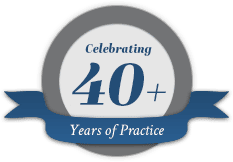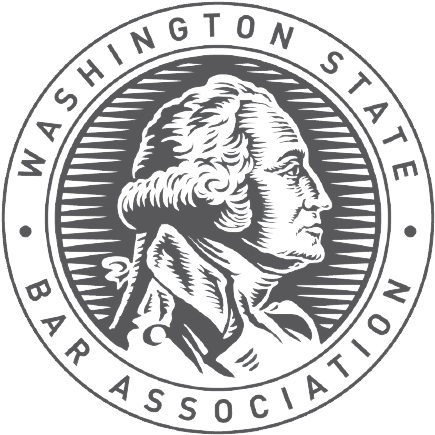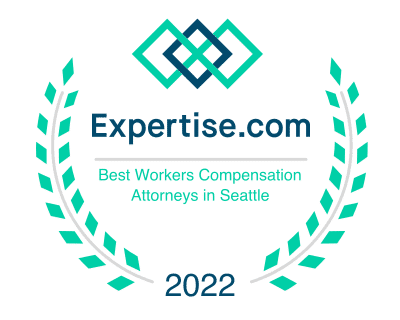Washington State Legislators passed a new law exempting certain firefighters, emergency medical technicians (EMT’s), and law enforcement officers from the L&I rule which disallows on the job stress/PTSD as an occupational disease.
Said another way, first responders can now file a successful PTSD claim for the effects of cumulative trauma.
More about this later, but first it is important to know that this new law is a fix to the old law. The old law does not allow PTSD claims which accumulate over time. (Occupational Disease).
Putting This New Law Into Perspective
To understand this new law, some detail of basic L&I law is required:
- L&I classifies all on the job claims as either an injury or an occupational disease. It is important to know which form of PTSD you have, injury or occupational disease.
- An injury is usually a 1x event occurring suddenly and traumatically. For further details of injury requirements see injury. An example of an injury is falling off scaffolding and breaking your arm. Any worker who incurs an on the job injury can file a claim and generally have it allowed.
- An occupational disease is different than an injury. An occupational disease develops overtime. For a detailed definition see Occupational Disease. An example of an occupational disease is a painter who breathes toxic chemical every day and develops asthma. That asthma is an occupational disease because it developed overtime and it arises naturally & proximately out of employment. Most workers who incur an occupational disease can file a claim, and generally have it allowed. However, not so for PTSD.
Stress (PTSD) Related L&I Claims – Under L&I rules, prior to this new law, stress was allowed as an injury but stress was not allowed as an occupational disease. This is true for all occupations.
INJURY – The Law for all claims is that stress is allowed as an L&I injury RCW51.08.100 and WAC 296-14-300. A one time mental event, or one significant mental event in a series of events, is an allowable injury. For example, a bank teller who is witness to a bank robbery, and who develops PTSD, has an allowable L&I injury PTSD claim, subject to these guidelines:
“As an injury, stress resulting from exposure to a single traumatic event, such as actual or threatened death, actual or threatened physical assault, actual or threatened sexual assault, and life-threatening traumatic injury, may be considered an industrial injury. These exposures must occur in one of the following ways:
- directly experiencing the event;
- witnessing, in person, the event as it occurred to others; or
- extreme exposure to aversive details of the event.”
OCCUPATIONAL DISEASE – Under the old law, for all L&I claims stress is not allowed as an occupational disease. L&I does not allow mental conditions caused by stress when they accumulate over time. These are classified as Mental/Mental claims.
Mental/Mental refers to claims of a psychological or psychiatric nature which appear to be based on mental perceptions not necessarily verifiable or related to objective or distinctive conditions of employment.
Mental/Mental claims have been removed from consideration as an occupational disease by L&I rule, WAC 296-14-300 . See this WAC for details.
What Does the New Law Do?
The new law allows stress/PTSD as an occupational disease for most first responders, (but not for other occupations).
This means that first responders can now file a PTSD claim. With the new law it makes no difference whether it is a 1x injury (which was previously allowed) or the cumulative effects of numerous traumas, occupational disease, which is now allowed.
The new law goes much further. It creates a rebutable presumption that the PTSD these first responders have is an occupational disease.
This is a huge benefit to first responders. Having an occupational disease is easy. Proving you have an occupational disease has always been expensive and difficult. This new law for first responders is very helpful because it doesn’t just allow a cumulative PTSD claim, it also makes proving this easier. This easing of the proof requirement is done with a rebutable presumption.
What is Rebutable Presumption?
The new law for first responders creates a rebutable presumption. A rebutable presumption is a legal procedural rule designed to assist persons when they are proving a claim. As it applies to this new law, and subject to the limitations listed below, any occupational disease or inury PTSD will now be presumed to be work related unless proven otherwise.
Why is This Presumption Helpful?
- An unrebutted legal presumption proves that the medical condition is work related.
- As the law was previously written, without a presumption, a first responder had to prove the medical details of their occupational disease claim. This required expensive and hard to get psychiatric or psychological testimony.
- Under the new law, the worker first shows they have PTSD, and then this medical condition will be presumed to be related to their job. If the employer chooses to fight the claim, the employer will have to prove that there is no PTSD or that the PTSD is not job related.
- Said another way this legal presumption is helpful because first responders’ PTSD occupational disease claims will now be easier to prove.
Important Details Limit the Scope of this New Legislation
- Even under the new law PTSD for first responders is excluded an an occupational disease if the condition is directly related to disciplinary action, work evalutions, job transfer, layoff, demotion, or termination taken in good faith by the employer.
- For the rebutable presumption to apply, PTSD must develop after the individual has served at least 10 years. This section appears to nevertheless allow the first responders PTSD to be an occupational disease, without the helpful presumption.
- For the stress related occupational disease presumption to apply to workers hired after the effective date of the legislation, that worker must, at the time of hire, submit to an employer sponsored exam which rules out PTSD. If no exam is provided by the employer, then there is no corresponding requirement.
- A first responder as it applies to this new law is:
- an emergency medical technician (EMT), generally defined as a full time city and county emergency medical technician
- a law enforcement officer, probably defined as full time commissioned county sheriffs, deputy sheriffs, and city police.
- certain firefighteras previously enumerated in RCW 51.32.185, together with some additional supervisors
- There still exists certain provisions of RCW 51.32.185 which benefits enumerated firefighters with occupational disease presumptions for respiratory disease, heart problems, cancer and infectious diseases.







